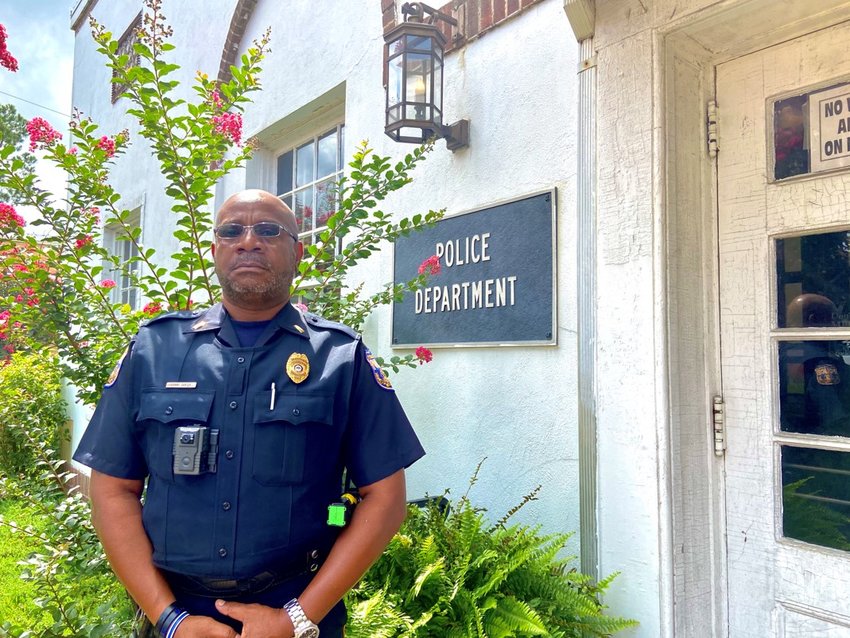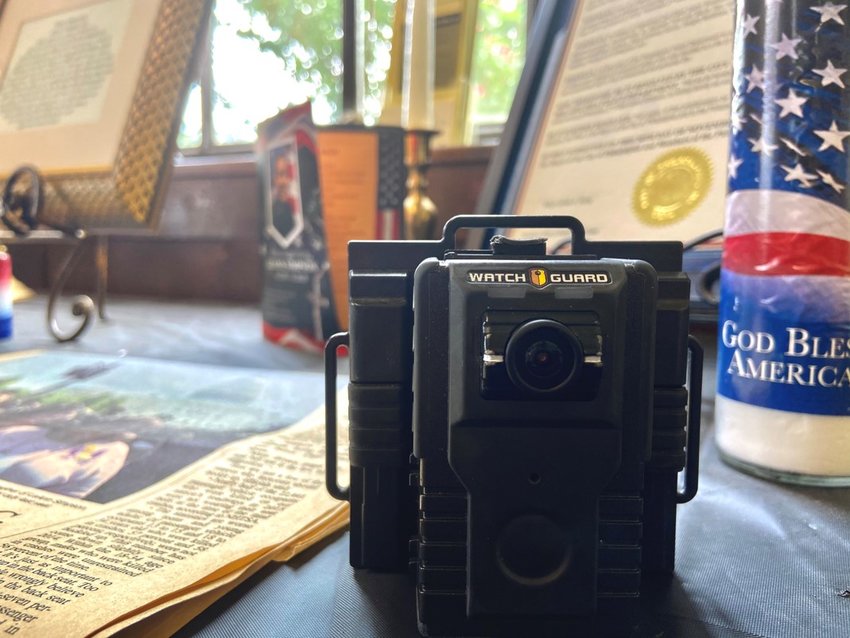Sheriff has plans to buy body cams
Body cams help hold law enforcement officers accountable and defend them, Neshoba County Sheriff Eric Clark told the Board of Supervisors last week, and he believes it’s time his deputies have a second set of eyes on calls.
Since the death of George Floyd at the hands of the Minneapolis Police Department in May, Clark said he has not been on a call where he was not recorded.
Clark described a recent incident where he and a couple of deputies went on a routine disturbance call in the northern part of the county and a young woman at the scene recorded them. Though nothing out of the ordinary occurred and no one was even taken into custody, Clark realized it’s time for his deputies to be equipped, he told supervisors.
“My whole thought process was anything said — one little small portion of a clip — could be taken and misused to harm my officers, to harm my staff and to harm Neshoba County,” Clark told the board at a regular meeting last week.
Clark wants there to be another set of eyes on any situation, especially if there is any uncertainty about whether something was properly handled.
“If you and I go out on a call together and whatever happens on that call, whether it be good or bad, we have to make an arrest, court later on, testimony, things like that, it would give us instant access to the fruits of our labor… More than anything, it would give us a true depiction of the events,” Clark said.
Clark will formally request $15,000 for implementation soon, saying the cost per officer is about $1,000. Hard drives to store the video and other components are a consideration.
“What I want to do as the leader here is to be able to fight for the guys, to get then better equipment to make sure that they have every opportunity to go home at the end of the day,” Clark said. “That’s my goal. We want to be fair. We want to be transparent. We want to administer justice, but at the end of the day, the goal is to go home.”
Neshoba County Deputy Todd Verry worked on the Lee County Sheriff’s Department when they introduced cameras. He admits he and other officers felt like the cameras were a burden at first, and due to their novelty sometimes the officers would forget to turn the cameras on or off when they got in or out of their vehicles.
However, after enough time with them, Verry and the other officers in Lee County began to feel like the cameras were a necessity.
“It actually paid off in the long run on several different occasions. Whereas the public will come in and complain on an officer and, not make stuff up, but be very dramatic about something, then the supervisor can go back and look at [the footage] and see that the officer wasn’t at fault or was at fault, whichever.”
Though Verry was not the officer under review, Verry’s bodycam footage has been used previously in this capacity when a supervisor was investigating a complaint. Verry agreed with Clark’s estimation body cams are especially necessary in this social climate.
Verry also explained how there are checks and balances to prevent tampering. Officers would have to upload their footage and were given a passcode which would only allow them to see their camera footage and they were not allowed to edit the videos or delete footage in any way unless with supervisory assistance. Only the supervisor could look at all video in the department with the use of a master code.
Beyond accountability, Verry sees other uses in body cams for both the public and the police. For the public, Verry wishes everyone could see the environments and situations police work in, and he believes bodycam footage allows even a dim glimpse into his world as law enforcement, which in turn he hopes will give people an empathetic viewpoint towards police. Secondly, the body cams also assist police efforts because they record crime scene evidence and interviews that otherwise would be lost in the hectic nature of the job.
The Philadelphia Police Department has had some form of body cams since 2009. The current model of camera, the Watch Guard, was implemented in 2016. According to Chief of Police Julian Greer, the cost of implementation was $1,000 per officer.
“In one instance, it has brought a sense of security to the guys, to the officers, just wearing them,” Greer said. “It gives us a full disclosure and details of traffic stops. It gives us accountability, and it also gives us a way to critique ourselves and make improvements as needed.”
Greer says the Watch Guard system is easy to use and manage in the field, and they have already used the bodycam footage in court and to settle complaints.
“Whether it’s to settle a dispute or to have an accurate depiction of a crime scene or as a training tool, it’s just a good tool to have,” Greer said.
Clark said implementing these body cams is a central focus of his time at the Sheriff’s Office, and he intends to get them to his men, someway and somehow.
“You know, $15,000 in the grand scheme of a budget is probably not that much, but every agency head, every authority here in the county is fighting for that same $15,000,” Clark said. “So I’m going to leave to the Board of Supervisors to prioritize those, but I’m going to ask. That’s the thing with me; I’m going to ask. And I’m going to have a plan to implement.”
County Administrator Jeff Mayo said he didn’t know any of their reactions, but he did say the Sheriff will be meeting with the board again soon to discuss body cams in the 2021 budget.
District 2 Supervisor and Board President Kevin Cumberland said supervisors haven’t gotten into the budgeting process yet, but body cameras protect deputies and citizens, agreeing with Clark that they are “a good tool. There’s no doubt about that.”





